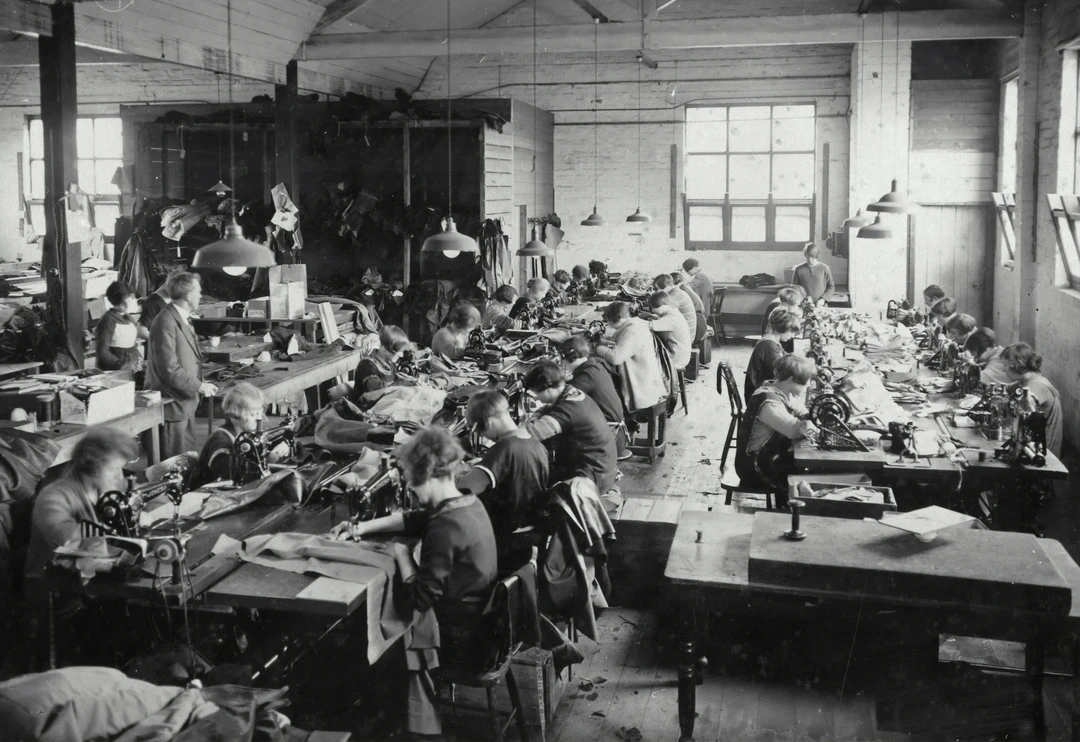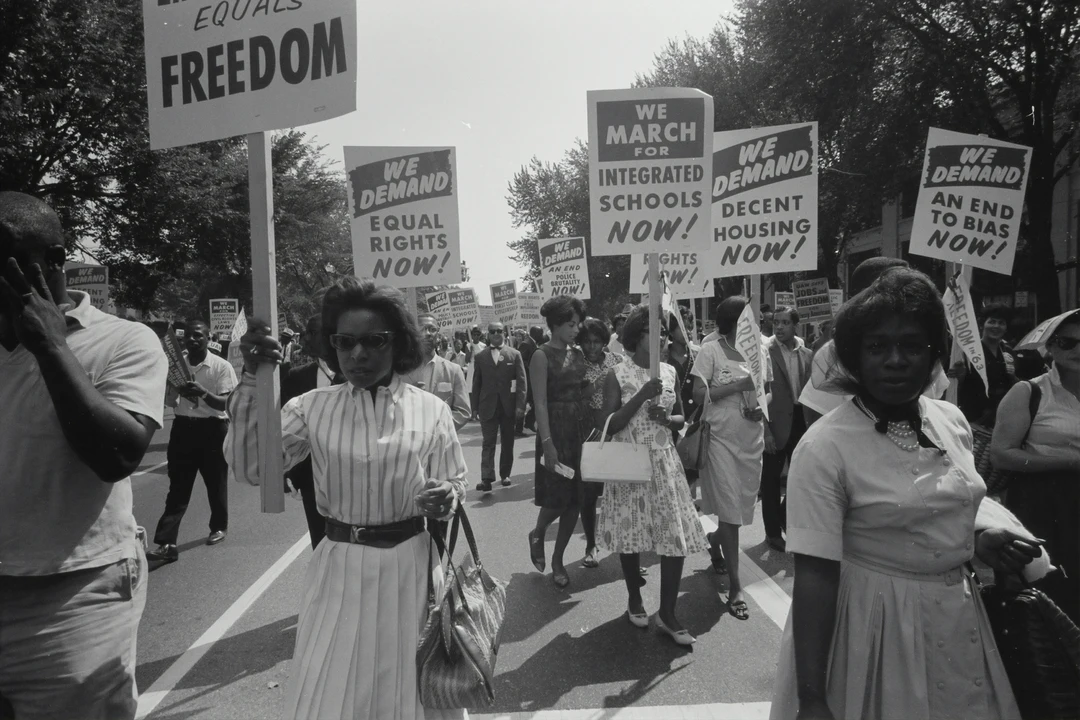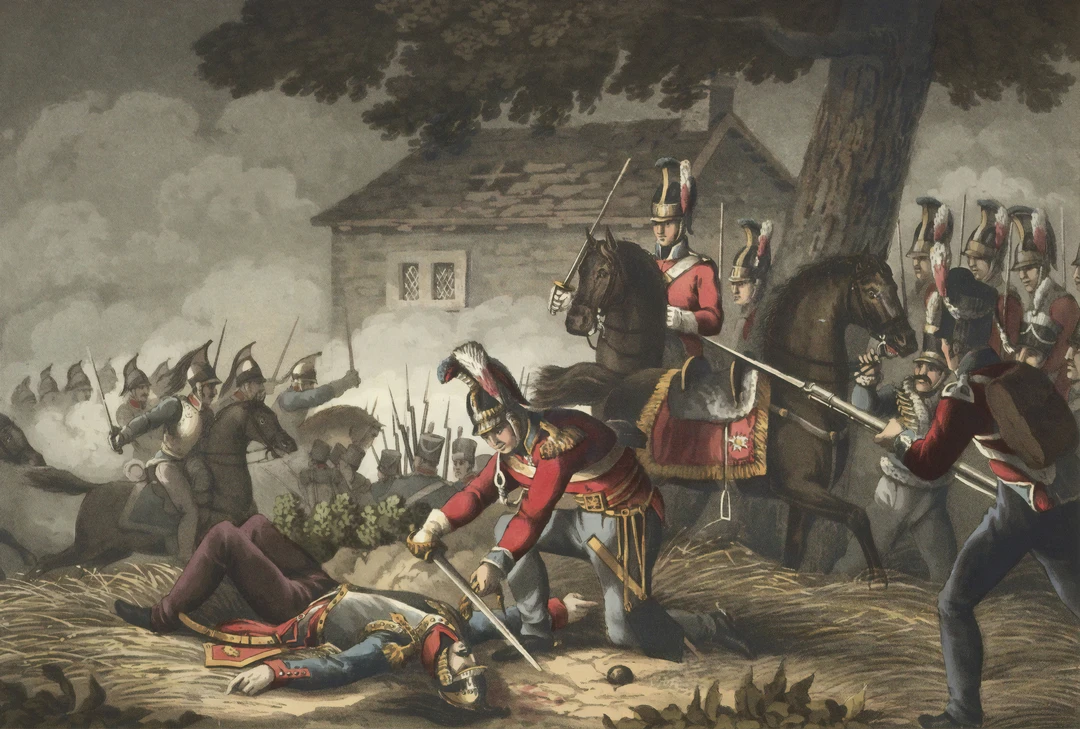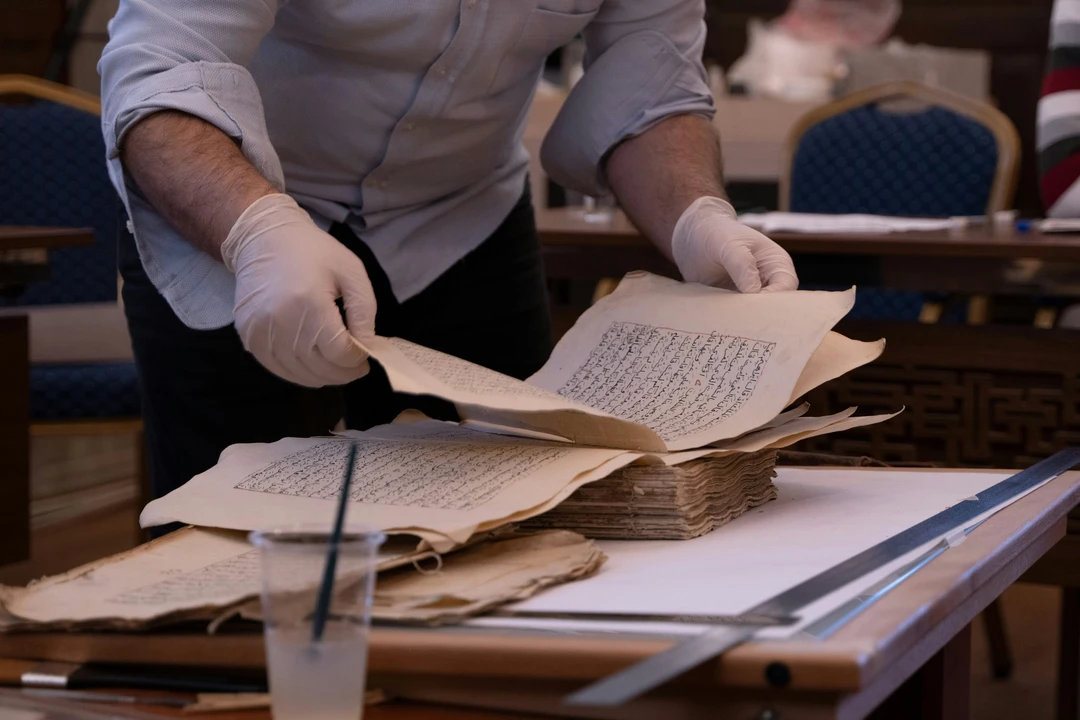The 15 Best Universities for History in the UK

History is a gateway to understanding people and the world around us, exploring key concepts like cause and effect, and change and continuity. The subject is vast and detailed, with a host of wider applications, making it a valuable subject to study at university.
Is a History Degree Worth It?
History is a broad discipline that encompasses a large variety of interests. Ancient History, Public History, Microhistory and Gender History – to give just a few examples! – provide vastly different perspectives of the past.
Studying History at undergraduate level allows you to tailor your study to suit your own personal passions, whether this looks like a focus on a particular time period within history or a specific methodology. Engaging in super-curricular programmes, such as an online History course, can help you realise where your specific interests lie.
No matter the focus, a History degree develops the skills to undertake historical investigations. History students learn to:
- Think critically
- Write with clarity and precision
- Consider multiple perspectives and arguments
These are all highly-transferable skills that can be applied across industries and sectors.
What Can You Do With a History Degree?
The broad range of skills gained from a History degree enables graduates to enter a vast number of respectable fields. Analytical thinking, time management skills, and good written communication are all highly valued by employers.
I. Pursue a career in law
A particularly popular sector amongst History graduates is Law, which also involves constructing effective arguments and handling large amounts of information.
Although many people enter the legal field directly after completing a Law degree, it’s also possible to enrol in a law conversion course. Oftentimes, employers appreciate that History graduates can offer a different approach to the study and application of Law.
II. Produce content or enter the film industry
Over the course of a History degree, students work on lots of different pieces of coursework, including a final-year dissertation. This means that History undergraduates become skilled at written communication, with many choosing to pursue a career in journalism or content creation.
There are even opportunities to enter the film and media industry, where historical accuracy plays a significant role!
III. Work in government or diplomacy
Another sector that suits History graduates well is that of government, public policy and diplomacy. Studying History and different civilisations over time often allows students to develop a strong understanding of foreign policy and the inner workings of governments.
IV. Enter the education or archiving sectors
Lots of History graduates opt to work in the education sector, whether that be as a school teacher or a university professor, to inspire a new generation with their love of the subject.
Others use the hands-on research experience obtained in their degree to join the fields of curation or archiving. This tends to involve conserving and managing cultural artefacts and historical collections in a library or museum setting.
Why Is Choosing the Right University Important for History Students?
While you’ll gain the same core skills from a History degree no matter where you study, it’s important to choose the right university for you.
Universities offer significant variations in History degrees. Some will offer different modules based on the research interests of the faculty, and others will offer unique courses that aren’t available at other universities, like History with a language, or History focusing on a certain time period or geographical location.
Your chosen university can impact your knowledge, skills and research, so it’s important to carefully consider what you’re looking to get out of your degree.
How Do I Choose a University for History?
There are a range of factors that you might consider when choosing a university, particularly for a Humanities subject like History.
I. Department specialisations
Arguably the most important factor to consider is faculty specialisation, as this will likely affect the entire curriculum. It’s useful to check the university’s website for the course content, which will show you a broad outline of your three years of study.
If your favourite topic or time period is missing, or you notice lots of compulsory modules that don’t interest you, then it’s probably worthwhile removing that specific university from your list. Different universities excel in different historical periods, regions and themes, so it’s definitely a good idea to match your interests with the university’s strengths.
II. Research opportunities
Potential research opportunities should also be a significant consideration.
High quality, original research marks you as a true historian, so you’ll want to ensure your future university offers a variety of opportunities to participate in research projects. This is particularly important if you want to complete a postgraduate course after your degree.
III. Location
Finally, it’s worth considering the location of your university. Close proximity and easy access to a well-equipped library, archives and historical sites will give you the best opportunity to thrive in your degree.
What Are the Best Universities for History in the UK?
With so many options, it can feel overwhelming knowing where to start your university search. So, we’ve curated a list of 15 leading UK universities renowned for their undergraduate courses in History.
Best for ancient history

1. University of Oxford
The University of Oxford offers a renowned Bachelor of Arts in Ancient and Modern History, covering ancient civilisations from Greece and Rome to Egypt and Mesopotamia. The structure of the course also allows students to explore parts of the general History curriculum that they wish to study.
Oxford’s History department has a distinguished faculty with expertise in ancient history and a strong emphasis on critical analysis. The course also features a unique hands-on approach, as students have access to the esteemed Ashmolean Museum and Bodleian Library for their primary sources – institutions that are rich in historical resources and artefacts.
2. The University of Cambridge
The University of Cambridge offers a Bachelor of Arts in Classics, focusing on classical civilisations and their historical impact. World-class teaching – by experts like Mary Beard! – is supplemented by renowned historical research centres and libraries equipped with vast collections of historical texts.
A key component of this course, and what arguably sets Cambridge apart from other institutions, is its rigorous classical language studies, enabling undergraduates to truly immerse themselves in the history of their studies.
Best for medieval and Renaissance history

3. University of St Andrews
The University of St Andrews offers a Bachelor of Arts with a strong emphasis on medieval history and the Renaissance. The University boasts excellent research centres, hands-on experience with historical artefacts, and a faculty with expertise in the Middle Ages and Early Modern history, providing students with comprehensive resources and tailored support.
St Andrews also offers a historic campus, where students can immerse themselves in the rich cultural and historical atmosphere.
4. University of Durham
The University of Durham offers a Bachelor of Arts with a strong emphasis on medieval and Renaissance history. The university is research-focused, boasting a strong research community in the field of history, and encouraging its students to engage in their own historical research projects.
Durham students have access to the university’s wealth of archives, manuscripts and primary sources. Those who appreciate a hands-on approach will find Durham’s archaeological excavations and fieldwork a welcome treat!
Best for modern and contemporary history

5. University College London
University College London offers a Bachelor of Arts in History with a wide range of modules in modern and contemporary history. The University excels in research and places a strong emphasis on student primary source research.
Students are encouraged to engage in in-depth critical analysis of recent historical events, and are given access to unique historical collections and archives to enhance the experience.
6. King’s College London
King’s College London’s Bachelor of Arts in History also has a strong emphasis on modern and contemporary history. Its faculty displays expertise in modern history, and staff are keen to aid students in analysing recent historical developments.
The university is known for its critical thinking and research-oriented approach, and has a commitment to producing graduates with strong independent research skills.
Best for social and cultural history

7. University of Edinburgh
The University of Edinburgh’s Master of Arts is a four-, rather than three-, year course in History, encompassing both a Bachelor’s and Master’s degree. The degree offers a range of in-depth modules in cultural and social history, allowing students to follow the human experience over time.
Such a strong focus on social and cultural history can be attributed to the significant number of faculty members with expertise in these approaches, meaning that tutors are able to provide valuable guidance and mentorship to students.
Edinburgh University also boasts extensive historical collections relevant to social and cultural history, including manuscripts and rare documents.
8. University of Bristol
The University of Bristol’s Bachelor of Arts in History offers a broad range of modules, including highly developed programmes for cultural and social history.
The University has a strong emphasis on research skills and independent analysis, aided by strong research support from the faculty, encouraging students to delve into the intricacies of cultural and social developments.
Bristol University is set apart from others in its distinctive opportunities for students to engage in community projects and public history, connecting the study of history with real-world present-day applications.
Best for European history

9. University of Glasgow
The University of Glasgow offers a Bachelor of Arts with a strong focus on European history, covering a wide range of periods and regions.
Glasgow is well-known for its research-intensive History department, which enables students to engage in in-depth historical analysis.
Excitingly, the University, unlike many others, offers opportunities for students to participate in European history-related study abroad programmes and research projects. This means students get to fully immerse themselves in the culture they’re studying, as well as experiencing a different kind of university setting!
10. University of Warwick
The University of Warwick offers a Bachelor of Arts with an emphasis on European history. During the first year in particular, students are required to explore both geographical and chronological breadth.
The University’s strong faculty support, including interdisciplinary mentorship, allows its students to explore historical topics from multiple angles and perspectives.
Warwick is also keen to offer its students a year abroad if they wish to take one, meaning History students are able to live and study in a country of historical interest to them.
Best for global history

11. University of York
The University of York’s Bachelor of Arts has a keen focus on global and imperial history, with first year modules centred around world politics, societies, economies and beliefs. This means that students are exposed to worldwide historical perspectives from the very start of their degree.
This focus is bolstered by the University’s strong connections to historical archives and resources focused on global history. York also offers a range of opportunities for students to engage in international historical research and fieldwork.
12. University of Manchester
The University of Manchester provides a Bachelor of Arts with a focus on global and imperial history, enabling students to study the impact of empires and global interactions.
The university boasts strong research centres and a diverse range of historical periods to study, including the ancient world. As a result, Manchester students gain a comprehensive and comparative knowledge of history.
The University of Manchester also offers its students the opportunity to spend a semester abroad at one of their partner universities, which may suit those who wish to try studying outside of the UK but don’t want to commit to a whole year abroad.
Best for public history and museum studies

13. Lancaster University
Lancaster University offers a Bachelor of Arts that specifically focuses on public history and museum studies. History students have the option to extend their degree with a placement year, helping students to gain practical experience through real-world applications of the discipline.
The University is renowned for its partnerships with museums and its practical training in public history. This, paired with opportunities for students to engage in community projects and public history internships, sets Lancaster graduates up for success in history-based jobs, such as curation and museum work.
14. University of Southampton
The University of Southampton’s Bachelor of Arts has a strong emphasis on public history and heritage studies. The University is renowned for its practical and research-oriented History programmes, and access to a wealth of historical resources and archives.
Southampton is also keen to offer students hands-on experience in the field of history. Students are given a variety of opportunities for internships and placements related to public history and heritage studies.
Best for interdisciplinary history studies

15. University of Sheffield
The University of Sheffield offers a Bachelor of Arts that emphasises an interdisciplinary approach to studying history.
Sheffield’s History department provides a range of modules that analyse history in tandem with other fields and disciplines. Students are able to explore history from various angles and perspectives – an incredibly valuable skill.
Ultimately, your own personal priorities should guide you in your decision. What do you want to get out of a History degree, and which university will best facilitate this?
We wish you the best of luck in the search for your perfect university!

By Sophie McSpadden
Sophie has recently graduated from St Hilda’s College, University of Oxford with a degree in History. In 2022, she worked as an Activities Coordinator for our summer school.
Looking to boost your university application?
Recommended articles
OxBright Tutors Share Their Top Tips for High School Graduates
Finishing high school can be a really intimidating juncture – you’re leaving the security of a routine you’ve followed for five plus years, and you’re faced with more options and less structure than ever before. Oh, and your decisions now can shape your future in a...
Which Career Is the Best Fit for Me?
Choosing your career path is one of the first big steps you’ll take as a young adult, so it can often be a daunting prospect. However, the possibilities are endless, and as long as you base your choices on your personal preferences, passions and interests, your...
How to Make a Study Schedule That Actually Works
Studying can sometimes feel like a daunting task, no matter how old you are or what level you’re studying at. You might be left thinking: How can I balance academics with my other commitments? How do I stay consistent with a study schedule? Is there a “good” or...



